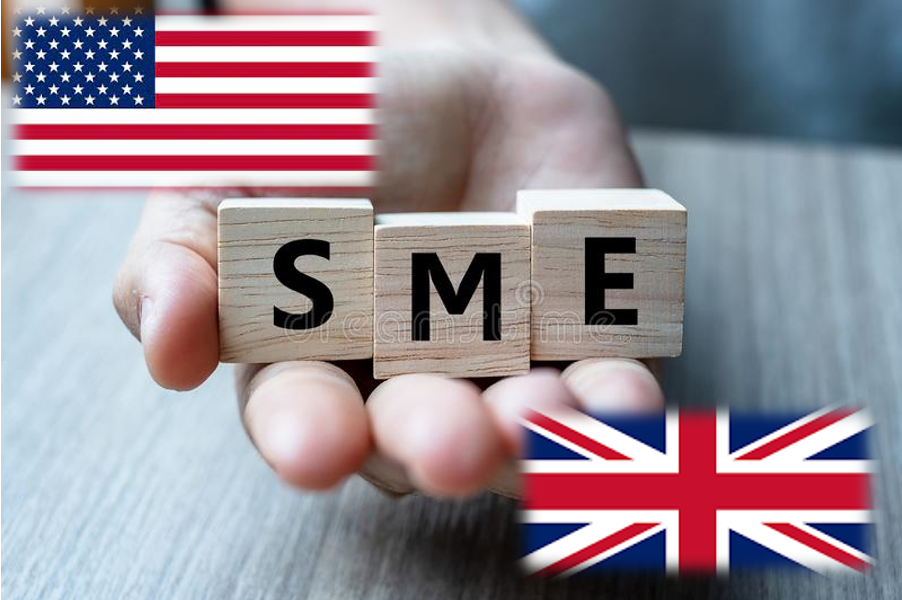Dr. Raymond Davies, Dr. Badri Narayanan Gopalakrishnan and Mr. Adhithya Balasubramanian
UK-U.S. Partnership has a historical legacy in the political, cultural, and economic matters concerning both countries mutually. Trade has played a significant role in boosting economic relationships between both countries. This study aims to study SMEs’ role (Small and Medium Enterprises) in the post-COVID trade policy with an emphasis on technological transformation and economic recovery. Data shows that SMEs have risen to prominence in the last decade in both countries; SMEs consists of more than 95% of businesses and are employing close to 50% or more in both countries. SME traders from the U.K. mutually identify the U.S. as a significant destination for imports and exports in the next three years. COVID-19 has disrupted businesses worldwide, forcing businesses to rethink their business strategies, especially the SMEs. We aim to look at how global pandemic, trade, business policy blend together under the context of changing technology and supply chains around the world. We suggest the need for rigorous and integrated approach to trade policy going forward which will play a major role in the business ecosystems for the two countries. This study points to the research noting the importance of SME entrepreneurial employers’ presence in the last economic recovery. The key is to achieve a cluster of SME supply chains collaborating and inter-linked with inherent entrepreneurial leadership and innovation within specific markets. In the present scenario, it is not the size but the quality of business relationships that can accelerate core competencies and tie companies to each other across the supply chain. SMEs’ flexibility is a vital tool to gain efficiencies, and bilateral free trade agreements can prove to be a useful tool to gain greater flexibility due to better trust and trade connectedness, as observed in the literature.

